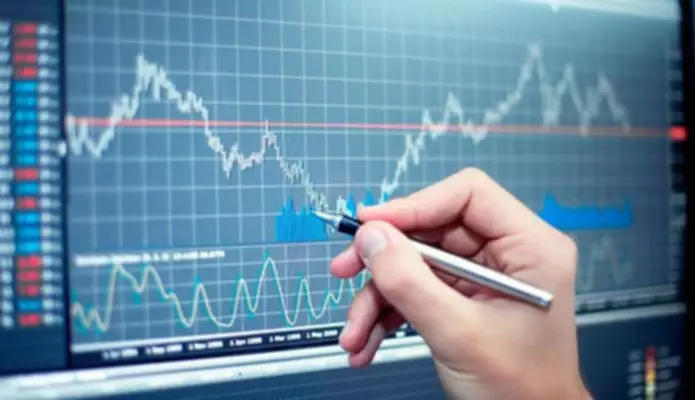However, some companies provide superior customer service than others. If you are a newbie or believe, you would benefit from having staff on hand to advise you or answer queries, do some preliminary research beforehand. You’ll get a plethora of results if you type in “scam broker” into any search engine of your choice. Because they promote themselves as such, ECN brokers are the simplest to discover. ● Prices from the interbank market may change (slightly in most situations).
Even if it is a very promising and prospective “novice”,
no one can be sure of its success/failure in the future, because the industry
is full of powerful competition. Don’t be alarmed by overnight rollovers; they’re a regular cost, and the difference in exchange interest rates can occasionally work to your advantage. However, keep an eye out for hidden costs like “account inactivity” penalties or excessive withdrawal fees. First, the legislation safeguards banks that engage in currency trading.
How to choose a broker?
An ECN broker uses Electronic Communications Networks to allow clients access to other participants in equity and currency markets. An ECN broker combines quotes from multiple market participants, and therefore offers types of brokers in forex clients a tighter bid/ask spread than what would be available to them. ECN’s act as a hub of major liquidity sources, usually represented by banks, liquidity providers, hedge funds and other major market players.

The diversity of the financial necessitates a broker that provides access to a variety of products and markets, such as stock in the stock market, gold in the gold commodities market, and etc. Whether you aspire to invest globally or diversify across asset classes, the right broker opens the doors to a world teeming with possibilities, aligning with your investment strategy and goals. Digital platforms are the gateways to financial markets, assessing the broker’s technology and platform usability is crucial. They’re often liquidity suppliers – an entity that buys a large volume of an asset and then distributes it to other financial institutions who then make it available to retail investors. In their role, they provide expert guidance, access to diverse markets and assets, and aid in developing strategies for investment, risk management, and financial planning.e managing risk.
Currency Traders Subcategories
Products and Services on this website are not suitable for Hong Kong residents. Such information and materials should not be regarded as or constitute a distribution, an offer, solicitation to buy or sell any investments. Before selecting, be sure to read our broker evaluations to discover whether a broker has the tools, resources, and reputation for meeting your needs.

STP brokers have the ability to transmit trade orders directly to their liquidity providers. Moreover, they do not interfere with transactions involving order execution. In addition, STP brokers that deal with a large number of liquidity providers may provide their traders a greater chance of achieving success in the forex market. It also avoids the larger spreads that are typical when dealing with a conventional broker, as well as providing overall cheaper charges and costs than dealing with a traditional broker.
nov. Different Types of Forex Brokers and their Individual Functions
The NDD forex broker generally either charges a commission or they widen the bid/offer spread in order to make a small profit on each trade executed, sometimes they do both. DMA brokers give traders a chance to access liquidity providers in the forex market directly. This means that high speed trading is possible without worrying about any broker fees or commissions. The clients of a forex broker include retail currency traders who use these platforms for speculation on the direction of currencies. Their clients also include large financial services firms that trade on behalf of investment banks and other customers. Liquidity providers can vary between banks, hedge funds, investment corporations and other brokers, and so there are no intermediaries involved in the order.

Position traders focus on long-term price movement, combining fundamental and technical factors. The main advantage of day trading is reduced risk (trades are closed in one session) and lower costs as there is no rollover commission (cost to carry the trade overnight). Immense drains on capital, in order to fund the support of Ukraine against Russia, have worsened what has been labelled “stagflation”. This inflationary windmill is seeing the price of foods skyrocket relative to real wages.
Is it common for brokers to have partnerships with other financial institutions?
This represents an important decision, because the type of forex broker chosen can affect both the quality of service you receive, as well as your transaction fees and dealing spreads. These firms typically offer their clients a platform to buy and sell foreign currencies. Some Forex brokers offer other services, such as CFD, futures, and stock trading. You should consider whether you understand how spread bets and CFDs work, and whether you can afford to take the high risk of losing your money. CFD trading and spread betting is also available, and I suggest you read my guide to CFD trading and guide to spread betting before you commit.
By selecting a broker that fits your trading style and preferences, you’ll be setting yourself up for success in the long run. Remember, each type has its own set of advantages and disadvantages, so take the time to evaluate what’s important to you as a trader. Do your research, read reviews from other traders, and don’t be afraid to ask questions before making a final decision. Technical analysis, on the other hand, involves studying charts and historical market data to identify trends and make informed decisions about when to enter or exit trades. You should always ensure that the broker you’re considering is regulated by a well-established governing body in their respective country or region. This helps to protect your investment from potential fraud or misconduct.
Trade with a Regulated Broker
If your broker charges fees in addition to spreads, combine the two to see whether the final price is acceptable. Make sure you understand what you’re doing before putting your money on the line—trading is usually less risky and more rewarding when you know what you’re doing. Don’t worry if you’re a complete beginner; almost every respectable broker offers extensive training and courses on how to trade currencies efficiently and without prior expertise. But, at the same time, they show the qualities of dealing desk brokers and will trade against you.
- You’re able to trade on prices sourced from global banks and top tier liquidity providers with no additional mark up.
- To find the right broker, you need to understand the types of brokers there are, the services they provide, and the fee and execution structures involved with the broker’s model.
- There’s usually no spread mark-up to pay, rather just a standard commission.
- Accounts should only be established with properly regulated brokers to avoid any issues with the security of funds and the honesty of the broker.
- Future markets are similar to forward markets in terms of basic function.
- One of the most important things you can do is choose the right forex broker.
- When it’s time to choose a broker for your trading career, it is crucial to understand the types of brokers out there.
So, before you commit to a trading style, it is necessary to be introspective. After all, there are many strategies out there, but there is only one of you. Position traders work on large time frames, usually daily or weekly charts. Their goal is to figure out where the currency market is going and then wait until the rest of the world catches up. This approach requires patience, knowledge and often a reasonably large account to make it worthwhile. The most strategic of all the trading approaches, position trading is reserved for those who have time, knowledge and energy to conduct research.
What Are the Different Types of FX Brokers?
Each of these three different types of forex brokers have a different way of handling transactions and executing orders. Details about the three basic types of forex brokers and their primary transactional qualities and distinctions follow. This market commentary and analysis has been prepared for ATFX by a third party for general information purposes only. You should therefore seek independent advice before making any investment decisions. Although we are not specifically constrained from dealing ahead of our recommendations we do not seek to take advantage of them before they are provided to our clients.
Evaluating their fee structures, such as commissions, spreads, and additional fees. Market makers offer a buy and sell quote to other financial companies, and they make a profit from this bid-offer spread. Their mission is to provide competitive quotes for the complete trading ecosystem. All ECN brokers have access to the same feed and trade at the prices quoted.
XTB is one of the largest brokers in the world that has won several industry awards for excellent trading solutions and conditions. XTB is an STP broker that offers competitive pricing and powerful proprietary trading technology. Although many different currencies are traded, only a select number have widespread interest https://www.xcritical.com/ and high liquidity, such as EUR/USD. In addition to a range of forex pairs, the broker should offer several other asset classes such as CFDs, Cryptocurrencies, Shares, ETFs, Commodities, and more. However, an STP broker can mimic a Market Maker and match the order internally or take on the order’s counterparty.